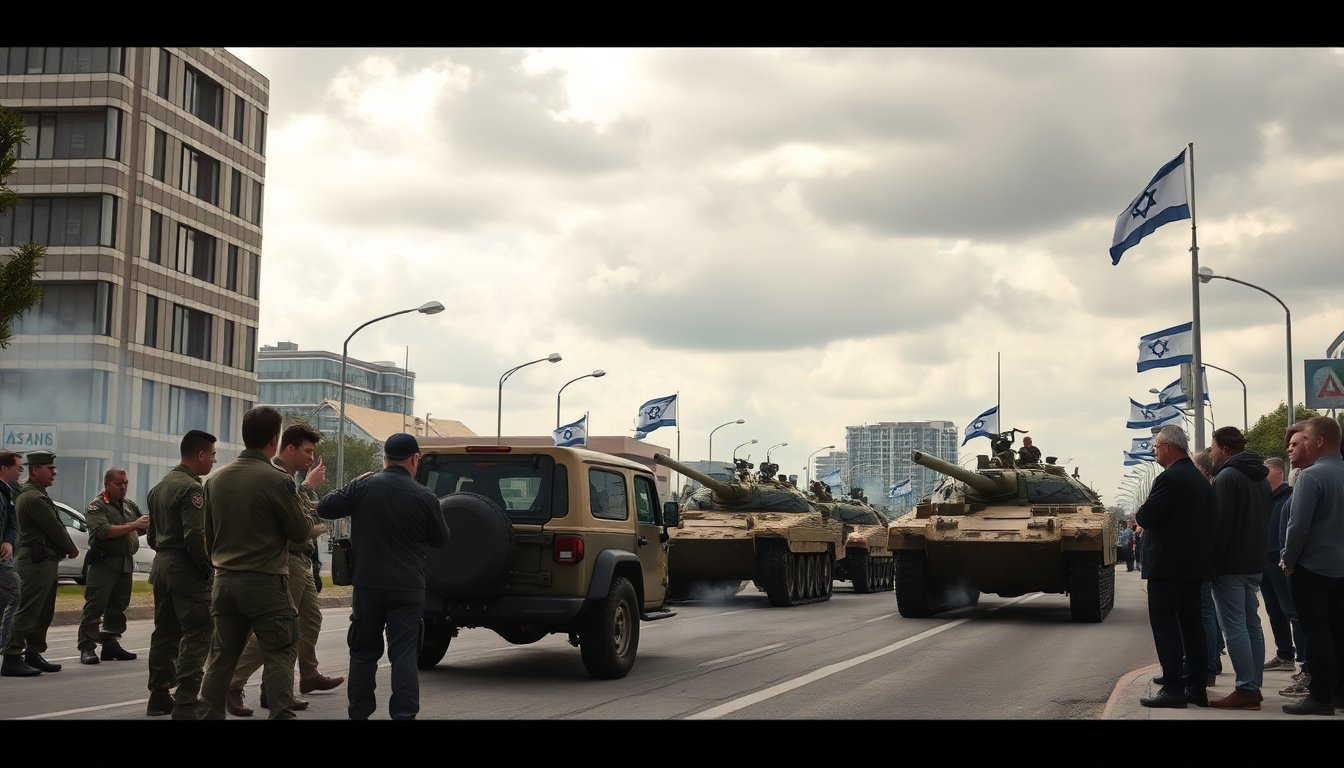Table of Contents
Netanyahu vows to continue military operations amid international criticism
In a recent address to the United Nations, Israeli Prime Minister Benjamin Netanyahu affirmed his intention to sustain military operations against Israel’s adversaries. This declaration arrives in the context of escalating international criticism surrounding the ongoing conflict. Netanyahu’s comments, which referred to his critics as ‘weak-kneed,’ highlight his determination to pursue military goals until he believes all perceived threats are neutralized.
Defiance in the face of opposition
In his recent speech, Israeli Prime Minister Benjamin Netanyahu addressed the significant backlash Israel encounters globally. He criticized those he perceives as lacking the determination to confront threats to Israel’s existence. Emphasizing a resolute national stance, he stated, ‘We will not back down until those who threaten our nation are gone.’ This statement underscores a recurring theme in his rhetoric: the need for a strong defense strategy amid ongoing challenges.
Global reactions and implications
The international community has expressed a blend of concern and condemnation regarding Israel’s military actions. Critics contend that ongoing military engagement intensifies tensions instead of reducing them. The United Nations has witnessed a surge in calls for peace negotiations and humanitarian considerations, which the government led by Netanyahu has frequently dismissed. As global leaders voice their dissatisfaction, Netanyahu’s defiance may result in further isolation for Israel on the international stage.
Historical context of Israeli military operations
To understand Prime Minister Netanyahu’s current stance, it is essential to examine the historical context of Israeli military strategies. The conflict in the region has longstanding roots, marked by a persistent cycle of violence and retaliation. Israel’s military actions are frequently justified as necessary for national security, a perspective that Netanyahu emphasized in his recent address. He asserted that Israel has the right to defend itself against adversaries that threaten its existence.
Framing the narrative of survival
Central to Prime Minister Netanyahu’s discourse is the concept of survival. He presents Israel as a nation perpetually under threat, which rationalizes his administration’s assertive military strategies. This viewpoint resonates with numerous Israelis who have experienced various conflicts and grasp the stakes involved. By depicting the situation as a struggle for survival, Netanyahu seeks to galvanize domestic support and validate his government’s actions.
Future of Israeli military engagement
As tensions escalate, the future of Israel’s military operations remains unclear. Prime Minister Netanyahu’s commitment to addressing perceived threats indicates that military engagement will continue, despite growing international opposition. This determination raises significant questions about the possibility of peace in the region. With increasing demands for a ceasefire and diplomatic negotiations, Netanyahu faces the challenge of reconciling military goals with the need for dialogue.
Netanyahu’s remarks at the United Nations underscore his unwavering commitment to Israel’s military strategies amid widespread global dissent. The ongoing tension between military action and diplomatic solutions will play a crucial role in shaping the region’s future. As calls for restraint and dialogue grow louder from international leaders, how Israel’s leadership responds will significantly impact the trajectory of peace efforts ahead.


